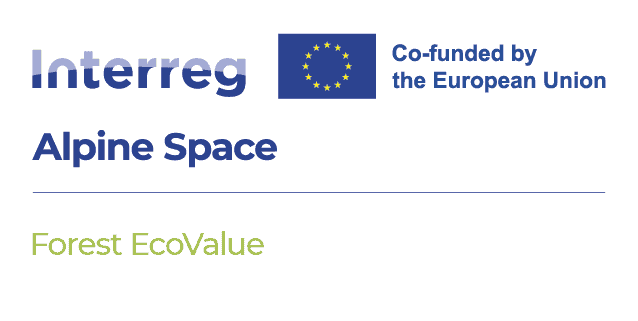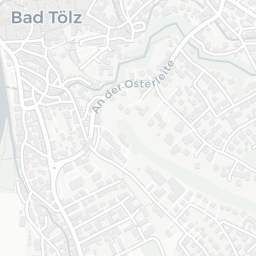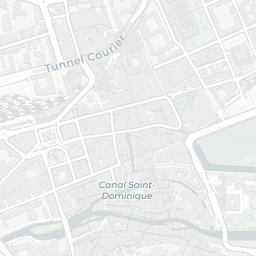
Overview
Forests of the Alpine region are facing serious threats from abandonment, climate change, and territorial degradation, that cause a decline in natural resources and in the essential services that forests provide. This, in turn, leads to high maintenance costs, making it difficult for both public and private owners to sustainably manage them.
Forest EcoValue comes to the rescue by proposing sustainable business models that focus on circular, green, and bio value chains in areas such as energy, construction, chemistry/pharmaceuticals, food, and recreation.
By bringing together the efforts of the public and private sectors, along with the participation of citizens, Forest EcoValue aims to create market frameworks and payment systems for the forest ecosystem services. Through these sustainable business models, Forest EcoValue can generate green businesses and job opportunities, thus boosting the economy in the entire region.
Factsheet
- 2021 – 2027
- Carbon neutral and resource sensitive Alpine region
- SO 2.2 - Promoting the transition to a circular and resource efficient economy
-
- AG2 Economic development
- AG6 Natural resources
- AG8 Risk governance
- 11/2022
- 10/2025
- 2.476.073 EUR
- 1.857.055 EUR
Description
The proposed solutions will be tested in a pilot action consisting of a network of 5 Living Labs in Austria, France, Germany, Italy and Slovenia.
The project will focus on a subset of ecosystem services from the following categories: provisioning (e.g. biomass, raw materials, chemicals); regulating & maintenance (e.g. biodiversity, natural risk reduction, CO2 absorption); cultural (e.g. recreation, habitat experience, health).
On the selected subset of forest ecosystem services (FES) the project will:
- Map and analyze the delivery capacity of forests
- Identify and estimate economic potential, define business models, and create market frameworks
- Test the models and tools in the Living Labs, involving local stakeholders
- Drive a consultation on the need for innovative policies to support forest maintenance, forest ecosystem services markets, and green value chains
- Provide transferable methodologies, tools, models, and policy proposals
- Implement training and capacity-building activities.
Partners
- 45.06895977.6830865
- 45.4892079.1936874
- 45.18366835.75448
- 46.052427814.4800014
- 48.15105211.5788014
- 45.51485269.2122145
- 47.078051415.45053284111076
- 45.77627923.1724467
- 45.75917394.8448825
- 47.064465215.4078796


















Outcomes
-
Transnational network of five Living Labs to set up market frameworks and payment schemes for Forest Ecosystem Services
The guidelines and tools developed during the project (Deliverable 1.3.2) are applied in five Living Labs to assess and develop markets for selected Forest Ecosystem Services (FES) in Alpine communities. These Living Labs support stakeholders in setting up FES markets, focusing on various forest types and management practices. Local analysis are combined with international collaboration, data sharing, and joint proposals for FES markets and payment schemes. -
Transnational guidelines and tools for the establishment of public-private markets for Forest Ecosystem Services in Alpine communities
This ouput provides practical, transferable guidelines and tools for various local and regional contexts to assess Forest Ecosystem Services and establish public-private payment schemes. The multilingual guidelines outline key steps, options, appropriate solutions for different contexts, applicable methodologies and tools, and governance aspects. -
Regional feasibility assessments for the Living Lab territories
The pilot action's analysis will produce a feasibility assessment for each Living Lab territory, including recommendations for effectively setting up and managing public and private payment schemes based on local forest resources and their ecosystem services. This output aims to be promoted to local and regional policymakers, as well as other key private and public decision-makers, who can play a crucial role in establishing Forest Ecosystem Services markets in these areas. -
Regional Roadmaps
The Regional Roadmaps incorporate the results from each Living Lab and will be co-drafted with local stakeholders through a guided participatory process. These roadmaps outline the next steps for implementation and are adopted by key stakeholders at the end of the pilot, demonstrating their commitment to ensuring continuity and further development. -
Policy memo to enable the development of Forest Ecosystem Services markets, payment schemes and forest-based value chains in the Alpine Region
A memorandum is agreed among policymakers from partner regions, countries, and beyond, outlining conclusions on policy actions and regulatory adaptations for establishing Forest Ecosystem Services markets in the Alpine region. This memorandum results from inputs collected during policy forums and dialogue processes. -
Online training modules
The content developed for the Summer School (Deliverable 3.2.2) are published on the project website and on the YouTube channel for a wider audience. These training modules offer clarifications and examples on applying the proposed methodologies, tools, and business models, as well as insights on policy and governance barriers and enabling factors.
Pilots
-
Italian Living Lab - Valle Tanaro
Download




 The Italian Living Lab is located in the Valle Tanaro, encompassing 34 municipalities and 67,264 hectares, with forests covering 61% of the land. The valley features extensive forests of chestnuts, beeches, Scots pines, mountain pines, and larches. This environment provides an ideal testing ground to develop potential solutions for sustainable and beneficial forest management through a participatory process with local stakeholders and to validate the market models for ecosystem services proposed by the Forest EcoValue project.
The Italian Living Lab is located in the Valle Tanaro, encompassing 34 municipalities and 67,264 hectares, with forests covering 61% of the land. The valley features extensive forests of chestnuts, beeches, Scots pines, mountain pines, and larches. This environment provides an ideal testing ground to develop potential solutions for sustainable and beneficial forest management through a participatory process with local stakeholders and to validate the market models for ecosystem services proposed by the Forest EcoValue project.
The area offers a diverse ecosystem that supports vital ecosystem services, such as biodiversity conservation, CO2 sequestration, water purity, and outdoor activities linked to ecotourism. Furthermore, the territory is well-suited for exploring various market opportunities, including those related to local products and timber, as well as untapped potential in green chemistry.
For more information on the Italian Living Lab go to the national webpage (in Italian): https://www.finpiemonte.it/progetti-strategici/forestecovalue-livinglab-piemonte -
Slovenian Living Lab - Tržič Municipality






Located in the northern part of Slovenia lies one of the pilot areas of ForestEcoValue, the Municipality of Tržič. With forests accounting for 72.7% of the landscape, Tržič offers a diverse terrain, from mountains in the north to hills and flatlands in the south.
Tržič is a region rich in opportunities waiting to be explored. With a strong tradition of close-to-nature forest management and abundant natural resources, the municipality provides a promising environment for sustainable forestry practices.
Additionally, a substantial portion of Tržič's forests serves a crucial protective role, mitigating natural hazards and ensuring community safety. Yet, Tržič also embraces leisure and tourism, witnessing a growing interest in recreational activities over recent years.
From timber and biomass production to carbon sequestration and natural hazard mitigation, these forests offer valuable ecosystem services benefiting both local residents and the environment.
For more information on the Slovenian Living Lab go to the national webpage (in Slovenian): http://www.zgs.si/zavod/mednarodni_projekti/forest_ecovalue/index.html -
German Living Lab - Bad-Tölz - Wolfratshausen and Miesbach






The German Living Lab is located in the districts of Bad-Tölz - Wolfratshausen and Miesbach and is forested with a share of 53 % of the total area. The main tree species in the area is spruce, with a share of 60 %, followed by beech with 15 %, hardwood with 11 % and fir with 6 %. The forest landscape is mainly characterized by mixed forests. Around 41% of the forest is in state ownership, around 4% belongs to the municipalities and over half of the forest is privately owned (55%). The forest in the Living Lab plays a major role as a supplier of raw materials and serves as an important side income for many farms (Amt für Ernährung, Landwirtschaft und Forsten Holzkirchen 2024). The Living Lab lays in popular hiking areas like Isarwinkel or the Tegernsee valley and is criss-crossed by many hiking trails and alpine pastures. In addition to timber production and the recreational benefits of the forest, ecosystem services such as CO2 storage, provision of clean drinking water, natural hazard protection or the provision of habitats for wild animals and plants are of particular importance.
Source: Amt für Ernährung, Landwirtschaft und Forsten Holzkirchen (2024): Unser Wald im Amtsbereich, https://www.aelf-hk.bayern.de/forstwirtschaft/wald/093202/index.php (Last retrieved: 02.04.2024).
For more information on the German Living Lab go to the national webpage (in German): https://www.ifuplan.de/de/kompetenzen/oekosystemleistungen/forest-ecovalue -
French Living Lab - Grand Annecy Agglomération





 Grand Annecy Agglomération, situated in the Haute-Savoie department at the frontier of France and Switzerland, comprises 34 cities with 250,000 inhabitants. Nestled in the Alps, it boasts medium-altitude mountains and the picturesque Lake of Annecy, surrounded by forests covering 31% of the area. Popular for year-round living and tourism, it attracts 2 million tourists annually, offering activities like hiking Mont Veyrier, skiing Mont Semnoz, and enjoying the old city center. The region's forests support recreational activities and are crucial for tourism and inhabitants' outdoor pursuits. Stakeholders, including tourism-related businesses and companies benefitting from the lifestyle, support forest management. The area relies on the lake and forest springs for water, with protection forests playing a vital role in mitigating risks like rock falls. Biodiversity protection zones, such as Parc Naturel des Bauges and Réserve Naturelle Nationale du Roc de Cher, safeguard various habitats. Forests in Grand Annecy comprise mixed and coniferous stands, facing challenges from climate change, notably with bark beetle attacks on spruce trees. Among these, 75% are private forest while 25% are public forests. The political agenda includes meetings on forests, trees, and wood, focusing on vulnerability and resource management. Initiatives like "250,000 arbres" aim to plant a tree per inhabitant, while the "Plan Sylvicole de Territoire" with Sylvactes promotes forestry actions.
Grand Annecy Agglomération, situated in the Haute-Savoie department at the frontier of France and Switzerland, comprises 34 cities with 250,000 inhabitants. Nestled in the Alps, it boasts medium-altitude mountains and the picturesque Lake of Annecy, surrounded by forests covering 31% of the area. Popular for year-round living and tourism, it attracts 2 million tourists annually, offering activities like hiking Mont Veyrier, skiing Mont Semnoz, and enjoying the old city center. The region's forests support recreational activities and are crucial for tourism and inhabitants' outdoor pursuits. Stakeholders, including tourism-related businesses and companies benefitting from the lifestyle, support forest management. The area relies on the lake and forest springs for water, with protection forests playing a vital role in mitigating risks like rock falls. Biodiversity protection zones, such as Parc Naturel des Bauges and Réserve Naturelle Nationale du Roc de Cher, safeguard various habitats. Forests in Grand Annecy comprise mixed and coniferous stands, facing challenges from climate change, notably with bark beetle attacks on spruce trees. Among these, 75% are private forest while 25% are public forests. The political agenda includes meetings on forests, trees, and wood, focusing on vulnerability and resource management. Initiatives like "250,000 arbres" aim to plant a tree per inhabitant, while the "Plan Sylvicole de Territoire" with Sylvactes promotes forestry actions.
For more information on the French Living Lab go to the national webpage (in French): https://lessem.lyon-grenoble.hub.inrae.fr/forest-ecovalue -
Austrian Living Lab - Styria region




 The Austrian Living Lab encompasses the entire state of Styria, Austria's most forest-rich state, boasting a forestation rate of 61.4%. Due to the heterogeneous geography ranging from floodplains and wine regions at 200m above sea level to high alpine areas up to 3,000m, the forest composition is very diverse. This includes typical riparian forests in the south with poplar, willow, alder, and oak, to lower acid soil areas with beech-oak forests with fir and sweet chestnut in the east, to spruce, beech, pine, fir, ash, sycamore in the mid-altitudes, and up to larch and stone pine in the high mountains. 65% of the forest is coniferous, 27% is mixed forest, and 8% is deciduous forest. 17.2% of the forest area is a protection forest. Thanks to legally mandated reforestation and sustainable usage, the forest area is increasing, thus acting as an important CO2 sink. Styria is unique in Austria for its "dynamic forest typification," which allows even laypeople to select climate-adapted tree species, thereby enhancing stability as well as biodiversity. 22.9% of Styria's forests are owned by large forest owners (more than 1000 ha), 55% are owned by small forest owners (less than 200 ha), and ca. 9% is owned by the Austrian Federal Forests Corporation. The forest is responsible for 1/6 of Styria's economic output. Styrian forests provide a range of important ecosystem services, from timber provision and CO2 sequestration to protection, habitat maintenance, and recreation functions.
The Austrian Living Lab encompasses the entire state of Styria, Austria's most forest-rich state, boasting a forestation rate of 61.4%. Due to the heterogeneous geography ranging from floodplains and wine regions at 200m above sea level to high alpine areas up to 3,000m, the forest composition is very diverse. This includes typical riparian forests in the south with poplar, willow, alder, and oak, to lower acid soil areas with beech-oak forests with fir and sweet chestnut in the east, to spruce, beech, pine, fir, ash, sycamore in the mid-altitudes, and up to larch and stone pine in the high mountains. 65% of the forest is coniferous, 27% is mixed forest, and 8% is deciduous forest. 17.2% of the forest area is a protection forest. Thanks to legally mandated reforestation and sustainable usage, the forest area is increasing, thus acting as an important CO2 sink. Styria is unique in Austria for its "dynamic forest typification," which allows even laypeople to select climate-adapted tree species, thereby enhancing stability as well as biodiversity. 22.9% of Styria's forests are owned by large forest owners (more than 1000 ha), 55% are owned by small forest owners (less than 200 ha), and ca. 9% is owned by the Austrian Federal Forests Corporation. The forest is responsible for 1/6 of Styria's economic output. Styrian forests provide a range of important ecosystem services, from timber provision and CO2 sequestration to protection, habitat maintenance, and recreation functions.
For more information about the Austrian Living Lab, go to the national webpage (in German): https://www.holzcluster-steiermark.at/projekte/forest-ecovalue/
Gallery
Downloads
- Download
- Download
-
Download
This report represents the initial version of the economic valuation of Forest Ecosystem Services (FES) and outlines the conditions necessary for efficiently developing FES markets and business models.
The primary objective of this report is to introduce the theoretical and foundational concepts essential for valuing forest ecosystem services and establishing markets. By developing a solid theoretical framework, the report aims to underscore the value of these services. In addition to the theoretical foundation, the report also covers practical aspects of conducting FES valuations and market creation. This comprehensive report is designed to serve as a guide for applying these methodologies within Living Labs.
-
This collection highlights a selection of best practices through case studies that focus on FES markets and Payments for Ecosystem Services. The intention is to provide attractive, easy understandable information about good practices which could be offered to forest owners.Download
-
This deliverable provides step-by-step guidance on assessing the economic value of Forest Ecosystem Services (FES) and determining the conditions needed to develop successful business models in FES markets. It is designed for local application, especially within Living Labs.Download
-
This folder presents a suite of tools designed to support local Alpine communities in assessing and leveraging Forest Ecosystem Services (FES) through innovative business models. The tools include:Download
- Database of FES values Europe – An excel file providing access to the direct value transfer tool, enabling approximate valuation for policy based on existing studies
- Multi-criteria approach_Survey – A survey, available in multiple languages (IT, ENG, FR, DE, SL) to evaluate private forest owners' management objectives and their impact on market and non-market FES
- Multi-criteria-approach_ROM – A robust, multi-objective optimization model that uses survey data as input.
- Adapted Business Model Canvas (BMC) – An adapted BMC for creating FES-oriented business models in Living Labs, supporting local forest-based businesses in developing sustainable and profitable frameworks
- Stakeholder mapping matrix – A tool for mapping stakeholders and categorizing them by their level of influence and interest in the issue
- Problem definition canvas – A tool for visualizing problems by breaking them into causes and effects for clearer analysis and action planning
- Value proposition canvas – A tool which helps clearly explain how a business model creates value for certain target audiences that may show different needs and demands
-
The document provides a comprehensive framework for assessing Forest Ecosystem Services (FES) in the Alpine region. It outlines methodologies for identifying, quantifying, and mapping FES under three categories: provisioning, regulating, and cultural services. It emphasizes sustainable forest management to support climate resilience, biodiversity, and economic opportunities. The methodology integrates ecological, economic, and social dimensions, leveraging advanced GIS tools, stakeholder engagement, and large-scale data for decision-making and policy recommendations.Download


